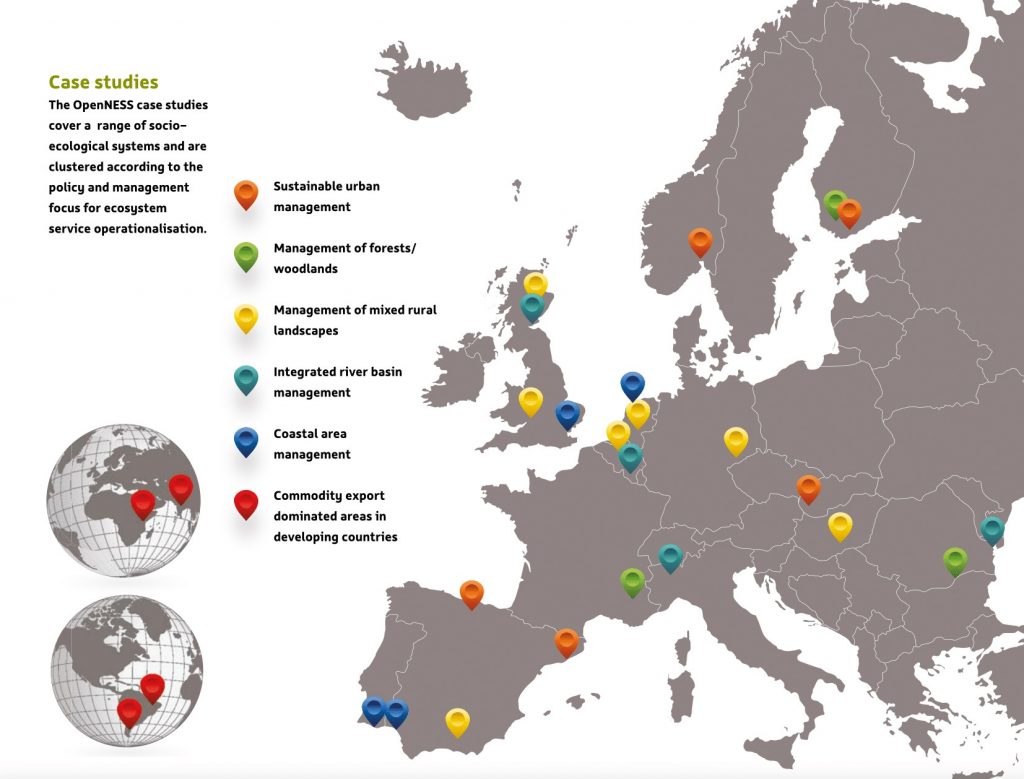OpenNESS aimed to translate the concepts of Natural Capital and Ecosystem Services into operational frameworks.
These would provide tested, practical and tailored solutions for integrating Ecosystem Services (ES) into land, water and urban management and decision-making. It examined how the concepts link to, and support, wider EU economic, social, and environmental policy initiatives, and scrutinizes the potential and limitations of the concepts of ES and Natural Capital (NC). OpenNESS worked in close cooperation with decision makers and other stakeholders.
The specific aims of OpenNESS were:
- To advance conceptual understanding of ES and NC and provide operational frameworks for application of the concepts in real-world management and decision-making situations,
- To examine how existing and forthcoming EU regulatory frameworks can enhance or restore the benefits derived from ES and NC using multi-scale scenario approaches,
- To develop and refine approaches for mapping and modeling the biophysical control of ES that can be used to assess the effectiveness of mechanisms, instruments and best management practices for sustaining ES delivery in the face of multiple uncertain drivers whilst conserving biodiversity,
- To develop hybrid methodologies that address trade-offs, synergies and conflicting interests and values in the use of ES through a combination of monetary, non-monetary and deliberative methods within multi-criteria and Bayesian approaches to decision support,
- To apply the concepts and methods developed and refined in the project to concrete, place-based case studies in a range of social-ecological systems with stakeholders and analyze the implications of local, regional and EU level decisions on the ES flows and use in other parts of the world,
- To translate the results into policy recommendations and integrate the outputs in a Menu of Multi-Scale Solutions and associated datasets that are available for ES users and managers as well as decision-makers, and
- To disseminate the results and to promote and maintain science-policy dialogue on the use of the concepts of ES and NC in sustainable land, water and urban management.

